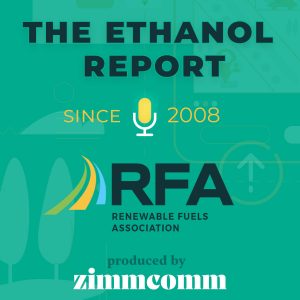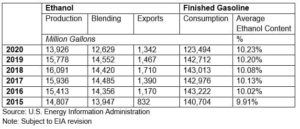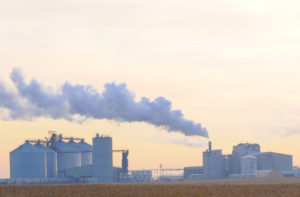 This edition of the Ethanol Report explores ethanol’s role as a “net-zero hero” with highlights from the 26th annual National Ethanol Conference (NEC).
This edition of the Ethanol Report explores ethanol’s role as a “net-zero hero” with highlights from the 26th annual National Ethanol Conference (NEC).
The report includes remarks from David MacIntosh, Environmental Health & Engineering Inc.; Stefan Unnasch with Life Cycle Associates; and Michael Berube, Acting Deputy Assistant Secretary for Transportation, who all spoke at the 2021 NEC. In addition, we have comments from Renewable Fuels Association CEO Geoff Cooper, Chief Economist Scott Richman, and VP of Industry Relations Robert White.
Ethanol Report 3-4-21 (21:54)The Ethanol Report is a podcast about the latest news and information in the ethanol industry that has been sponsored by the Renewable Fuels Association since 2008.
Choose an option to subscribe


 The
The  As the
As the  Leaders of the
Leaders of the  Secretary of Agriculture Tom Vilsack started his first full week of work Monday addressing the
Secretary of Agriculture Tom Vilsack started his first full week of work Monday addressing the  “Motorists across the UK are set to shift to a greener fuel with the introduction of E10 at petrol stations in September 2021,” announced a
“Motorists across the UK are set to shift to a greener fuel with the introduction of E10 at petrol stations in September 2021,” announced a  The
The 
 Former Secretary of Agriculture Tom Vilsack became current secretary under the Biden Administration this week, returning to the job he held for eight years under President Obama. Secretary Vilsack was confirmed by the Senate on Tuesday, sworn in virtually by Vice President Harris on Wednesday, and held his first press call with reporters Thursday morning.
Former Secretary of Agriculture Tom Vilsack became current secretary under the Biden Administration this week, returning to the job he held for eight years under President Obama. Secretary Vilsack was confirmed by the Senate on Tuesday, sworn in virtually by Vice President Harris on Wednesday, and held his first press call with reporters Thursday morning. Ethanol production took a dive last week along with the temperatures as the polar vortex that hit most of the country led to electricity outages, major disruptions in the natural gas market, and transportation issues.
Ethanol production took a dive last week along with the temperatures as the polar vortex that hit most of the country led to electricity outages, major disruptions in the natural gas market, and transportation issues.